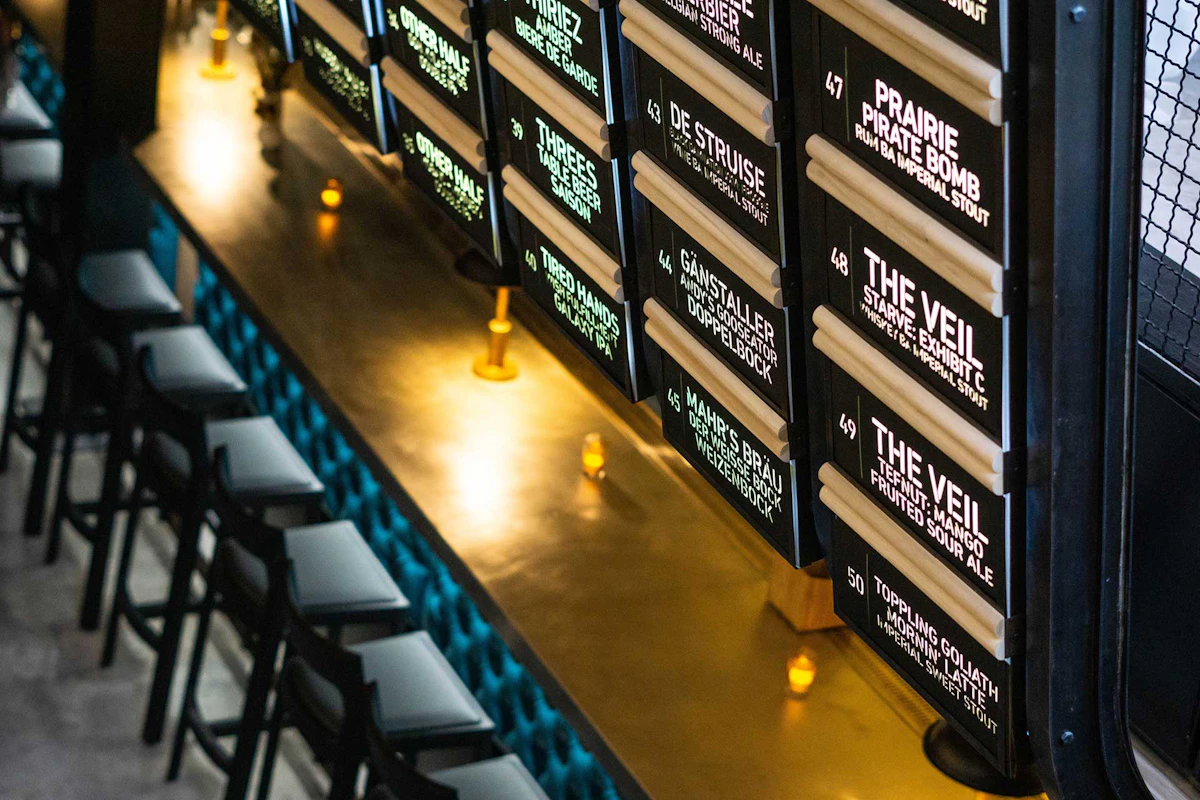There’s nothing quite like the simultaneous feeling of genuine shock and resigned inevitability brought on by the realization that your business is going to close.
Perhaps it’s the careful consideration of a lease extension or the slow yet ultimately dramatic changes to the neighborhood that prompt that realization. Maybe it’s mounting debt, cash-flow issues, or just the vagaries of a drinking populace dead set on generational change. Whatever the cause, proprietors eventually will see the need to close the books on a brewery, taproom, bar, restaurant, or retail outlet—even when they can’t imagine a world without it.
In an instant, the memories of build-out and opening—all exciting, exhausting, and exhilarating—flow into those initial feelings of true staff camaraderie. Next come the moments that made you recognize a bourgeoning team-wide commitment to excellence, culminating in the creation of truly memorable experiences for your guests. You remind yourself that—even before the pandemic wreaked havoc on our industry—20 percent of businesses never make it past one year of operation, 50 percent don’t make it beyond the five-year mark. Yet it’s a struggle to focus on the present before finding a way to the future.
Slowly however, the perspective shifts, time moves on, and the path forward becomes clearer.
Closing with Grace
Having just said goodbye to the Grand Delancey, our beloved beer bar on the Lower East Side of Manhattan, I’ve found that the effort and ideals required to operate a great business can help you close it gracefully. And they can even open doors to the next chapter.
In my experience, nothing helps you reconcile the loss of a business like concentrating on the future of your employees. Once the decision has been made, it’s imperative to get in front of your staff with the honest explanation of the closure—and with as much notice as possible. Some employers, worried that they’ll lose their staff—and crucial revenue—before the announced closing day, will provide little to no notice. But your responsibility to your employees requires far more transparency.
Set a closing date weeks in advance and get to work canvassing on behalf of your team. Call your distributor reps, fellow brewers, restaurant operators, and bar owners, and see what positions might be available. Provide glowing recommendations. Open the bar, cover shifts, close down solo—do whatever it takes to give your team the flexibility to interview at will. Help them find new homes so that they can go out on a high note.
The final weeks of your business should be impactful. When you schedule a slew of going-away events and features, discount beers to move, and make sure loyal fans say farewell a few more times, staff will remain busy and well paid on their way out. They’ll also remain positive as they share the final services with guests, ensuring the spirit of fellowship that inspired your business in the first place. When you are present, exhibiting resolve and maintaining robust leadership, your business will go out with a bang, leaving staff and guests alike excited to see what’s next.

Photo: Courtesy Neighborhood Restaurant Group
Exit Strategy
Once you’ve notified landlords, investors, and other key parties, it’s time to relay the unfortunate news to the public.
One solidly forthright, succinct, and heartfelt message should make the rounds. Initial posts to your social-media feed and website pop-up should be followed by personal outreach to select media outlets, members of the brewing community, and other friends from your business’s orbit. As word spreads, your location will get the kind of attention it hasn’t seen since opening. It’s a cathartic and surreal celebration that also contributes to the bottom line. Plus, it gives you a thousand opportunities to thank the people who’ve kept your business going as long as it has.
With some increased cash flow as closing nears, you can pay staff, close out suppliers’ accounts, and negotiate final terms. Take care to get leased equipment back to your vendors. Follow the guidelines provided by the IRS and Small Business Administration to make sure you close up cleanly. It’s imperative to finish strong—for the good of the business and for what may come next.
When the proper exit strategy is followed by a well-executed closure, the chance for renewed success increases greatly. Countless businesses have prospered after initial and sometimes repeated setbacks, so the future can be bright. The key is to apply due diligence in considering your options, while maintaining the trust and loyalty of staff, guests, and prospective investors alike.
Learning from the Previous Chapter
Lessons absorbed from a closed business, however long it lasted, can greatly strengthen any you open in the future. Hard-earned wisdom informs the answers to the many questions you need to ask any time you open a hospitality business:
- How does this new location compare to the old one?
- How’s the neighborhood—will you be surrounded by residents working from home or office buildings that still struggle to show signs of life?
- Private events continue to bring needed revenue—does the new spot offer a private dining room or spaces that can be dedicated to large-group reservations?
- Is there any outdoor space to fill with revelers as the weather warms?
- Can you diversify your offering with an in-house kitchen, a full bar, or both?
- How do your delivery and carryout prospects look?
The key to pivoting, relocating, and starting fresh is being honest and informed about what is required to drive revenue and thrive in a rapidly changing industry.
We opened the Grand Delancey a few months before the pandemic. We watched the world transform around us, battled through some lean years, and throughout it all, we celebrated the best of craft beer. The outpouring of support never wavered, and this has given us the confidence to reimagine our offering in a new location for a new time in our industry.
What’s past is certainly prologue, and we’re focused on the future.
